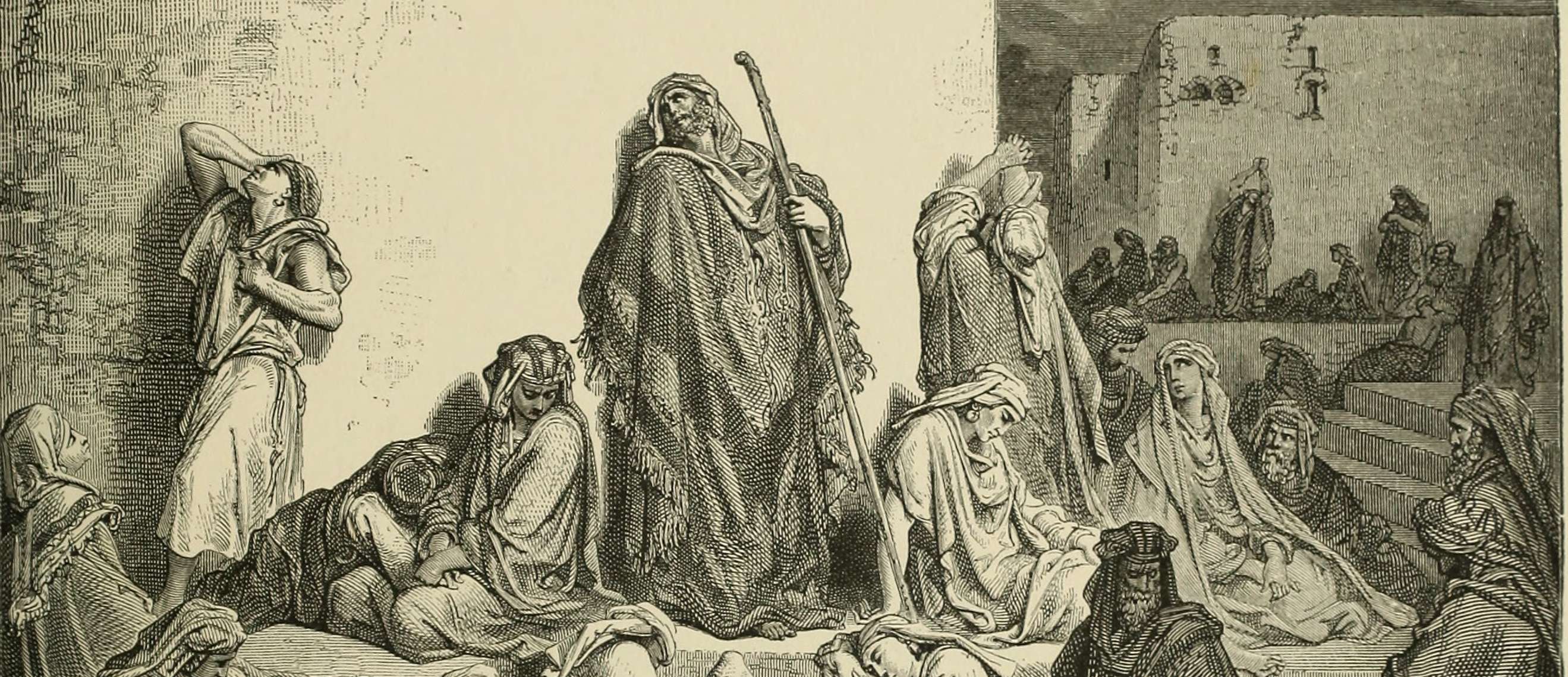Lamentations
How lonely sits the city
that was full of people!
How like a widow has she become,
she who was great among the nations!” (Lamentations 1:1, ESV)
Judah held on for another century or so after the fall of Israel, but it was not a glorious one. After Sennacherib left, Hezekiah received envoys from the rising kingdom of Babylon. He showed off his wealth: “There was nothing in his palace or in all his kingdom that Hezekiah did not show them” (2 Kings 20:12). Not a smart move for a small country, and Judah would hear more from the Babylonians.
After he died, Hezekiah was succeeded by Manasseh, whose 55 year reign saw a sharp descent into “the detestable practices of the nations the Lord had driven out before the Israelites.” (2 Kings 21:2) Injustice reigned: Manasseh “shed so much innocent blood that he filled Jerusalem from end to end” (2 Kings 21:16)
Then, under King Josiah, the high priest Hilkiah found in the temple the Book of the Law, its contents now foreign to Jerusalem. Josiah, advised by Hilkiah’s son, the prophet Jeremiah, ordered reforms and the restoration of the temple–and destroyed the pagan altars erected by Manasseh–but it was not enough:
Nevertheless, the Lord did not turn away from the heat of his fierce anger, which burned against Judah because of all that Manasseh had done to arouse his anger. So the Lord said, “I will remove Judah also from my presence as I removed Israel, and I will reject Jerusalem, the city I chose, and this temple, about which I said, ‘My Name shall be there.’” (2 Kings 23:26)
Josiah himself was spared. God waited until Josiah had been “gathered to his people” (a nice euphemism the Bible uses for someone’s death) to send the Babylonian king. In 586 BC, Nebuchadnezzar captured Jerusalem and deported most of its people. The brightest and best were taken to Babylon, others were dispersed through the kingdom. “It was because of the Lord’s anger that all this happened to Jerusalem and Judah, and in the end he thrust them from his presence.” (2 Kings 24:20)
Jeremiah had continued throughout his life to preach of the coming destruction. He was rewarded for his efforts with imprisonment: for disheartening the people. The Babylonians found him in prison and freed him. His release brought little comfort: it is believed to be Jeremiah who wrote the Lamentations on the fall of Jerusalem.
